What landlords need to know 12 months on from the introduction of a nationwide moratorium on evictions…
It’s been a year since the Australian Government announced a nationwide moratorium on evictions. Each State and Territory responded with its own amended legislation to help both landlords and tenants weather the pandemic – with the protection measures, relief packages and timeframes varying between jurisdictions.
With almost all temporary measures having ceased, here’s a rundown on the state of play for each state and territory.
IMPORTANT: While we have done all we can to make sure the info below is true and accurate at the time of publication, this is a constantly evolving situation and things may change. We will do our best to update this page regularly but recommend you visit the Australian Government COVID-19 information pages and similar state/territory government sites (listed under each jurisdiction below) for the most up-to-date information.
Queensland (QLD)
Tenancy matters
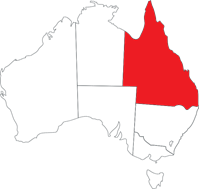 On 24 April 2020, the Queensland State Government introduced the Residential Tenancies and Rooming Accommodation (COVID-19 Emergency Response) Regulation 2020. The legislation implemented measures to freeze evictions due to rent arrears for Queensland tenants impacted by COVID-19.
On 24 April 2020, the Queensland State Government introduced the Residential Tenancies and Rooming Accommodation (COVID-19 Emergency Response) Regulation 2020. The legislation implemented measures to freeze evictions due to rent arrears for Queensland tenants impacted by COVID-19.
The new protections meant landlords were unable to evict a tenant for rent arrears caused by financial distress due to the impact of COVID-19 until 29 September 2020. Tenants were also able to break their leases early with limited fees (one weeks’ rent) if they could prove financial hardship and could not be placed on a tenancy database (blacklisted).
From 30 September 2020, Queensland began the transition back to normal residential tenancy arrangements and processes under the Residential Tenancies and Rooming Accommodation Act 2008. The six-month eviction moratorium, and measures implemented to support it, ceased to apply after 29 September 2020, while other protections continue to apply until 30 April 2021.
Measures that ceased to apply from 30 September 2020
- the six-month eviction moratorium for COVID-19 rent arrears
- fixed-term agreement extensions for COVID-19 impacted tenants
- ending agreement provisions that prevent property owners ending tenancies with COVID-19 impacted tenants without grounds and provide additional grounds for parties to end tenancies (owner occupation and sale of premises which require vacant possession)
- adjusted rent and bond processes that support parties to negotiate arrangements to manage COVID-19 impacts on their tenancies
- mandatory conciliation of COVID-19 related tenancy disputes through the RTA.
Measures that continue to apply until 30 April 2021
- provisions allowing tenants experiencing domestic and family violence to end their tenancies quickly
- protections for tenants against being listed in a tenancy database for rent arrears caused by COVID-19 impacts
- limits on re-letting costs for eligible tenants who end their fixed-term tenancies early
- short-term tenancy statement extensions for moveable dwellings
- entry restrictions and requirements to support COVID-19 social distancing measures
- relaxed repair and maintenance obligations.
Relief packages
A rental grant for eligible tenants experiencing hardship was introduced, providing up to four weeks’ rent (to a maximum of $2,000). Applications for the grants closed on 27 April 2020.
The Queensland Government introduced COVID-19 land tax relief measures in April 2020 that applied to the 2019-20 and 2020-21 financial years. Landlords did not need to apply for the land tax liabilities deferral. Applications for the land tax rebate closed on 26 February 2021.
Legislative changes
In 2019, the Queensland Government looked at reforms to the residential tenancies legislation. The three key areas of reform were safety and security, protection against domestic violence, and protections if renting with pets. No further detail is available.
Resources
- The Hub
- Residential Tenancies Authority (RTA)
New South Wales (NSW)
Tenancy matters
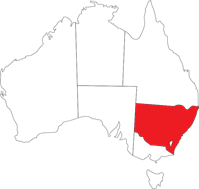 The NSW State Government introduced a six-month moratorium on new forced evictions of tenants in rental arrears due to COVID-19 which was effective from 29 March 2020 to 15 October 2020.
The NSW State Government introduced a six-month moratorium on new forced evictions of tenants in rental arrears due to COVID-19 which was effective from 29 March 2020 to 15 October 2020.
Tenants in hardship were also able to break their leases with reduced penalties (two weeks’ rent) and could not be put on a tenancy database for rent arrears.
On 23 September 2020, the evictions moratorium was extended until 26 March 2021. During the six-month transition period, COVID-19 impacted tenants who accrued rent arrears between April 2020 and March 2021 were not subject to the standard tenancy eviction rules.
On 4 March 2021, it was announced that a six-month transition period from 27 March would be provided, during which tenants and landlords will be offered assistance to enter a repayment plan for any COVID-induced arrears. Tenants will only be able to be evicted if they fail to meet the terms of that plan.
From 27 March 2021
- current COVID-19 residential tenancy measures will be repealed
- amendments to legislation will be introduced to prevent tenants from being automatically evicted due to COVID-19 induced rental arrears
- landlords and tenants will be supported to draw up rental repayment plans that enable landlords to recoup COVID-induced arrears, while keeping tenants in their properties
- COVID-19 impacted tenants will be protected from being blacklisted on tenancy databases for arrears.
Relief packages
The NSW Government introduced land tax relief measures for landlords in April 2020. Applications closed on 31 December 2020.
Legislative changes
Changes to the residential tenancy laws started on 23 March 2020, with amendments to the Residential Tenancies Act 2010 and the new Residential Tenancies Regulation 2019. Changes included:
- Minimum standards to clarify 'fit for habitation'
- New smoke alarm obligations for landlords
- Changes of a 'minor nature'
- Damage and removing modifications
- New mandatory set break fees for fixed-term agreements
- Strengthened information disclosure requirements
- New material facts
- New information to be disclosed to prospective strata tenants
- Remedies for tenants for breaches to information disclosure requirements
- Additional water efficiency measures
- New rectification order process
- New standard form of agreement
- New condition report
- New landlord information statement
In December 2020, it was announced that changes were being introduced to enable survivors of domestic violence to terminate their lease immediately without penalty.
Resources
Victoria (VIC)
Tenancy matters
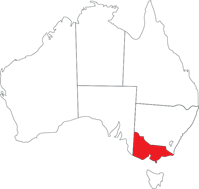 COVID emergency legislation to reform residential and commercial tenancy laws was passed by the Victorian Parliament on 23 April 2020.
COVID emergency legislation to reform residential and commercial tenancy laws was passed by the Victorian Parliament on 23 April 2020.
The reforms, effective from 29 March 2020, included introducing a temporary six-month ban on evictions and pausing rental increases for six months. Tenants in hardship were also able to break their leases without penalty. In August 2020, the restrictions were extended to 31 December 2020. A further extension was announced in September, with the ban on evictions and rent increases continuing until 28 March 2021.
From 28 March 2021
- landlords can evict tenants for rent arrears
- landlords can increase rents
- new rights and responsibilities apply
- rent reduction agreements can no longer be lodged with Consumer Affairs Victoria
- application can be made directly to VCAT for dispute resolution
Relief packages
In April 2020, the Victorian Government introduced measures to assist landlords and tenants during the COVID-19 crisis.
Land tax relief was available for landlords who met the eligibility criteria. Applications closed on 31 March 2021.
Rent relief grants of up to $3,000 were made available to tenants who met the eligibility criteria. Applications closed on 28 March 2021.
Legislative changes
The COVID-19 Omnibus (Emergency Measures) Transitional Regulations 2021 commenced on 28 March 2021. The Regulations provide for transitional matters arising from the repeal of Part 16 (COVID-19 temporary measures) of the Residential Tenancies Act 1997, facilitate transition out of the eviction moratorium and provide for the winding up of the Residential Tenancies Dispute Resolution Scheme.
On 29 March 2021, the Residential Tenancies Amendment Act 2018 came into effect. The new legislation makes 132 amendments to the Residential Tenancies Act 1997. The Residential Tenancies (Residential Tenancies Amendment Act 2018) Transitional Regulations 2021, which took effect from 29 March 2021 and will expire on 19 June 2021, will ensure a smooth transition into the new rental laws for Victorians. The Regulations provide for the renewed possession order heard between 29 March 2021 and 29 March 2023, applications for possession orders made between 29 March 2021 and 26 October 2021, and terminations under the National Rental Affordability Scheme.
The Residential Tenancies Amendment Regulations 2021, created to support the operation of the Residential Tenancies Amendment Act 2018, commenced on 29 March 2021. The Regulations supplement the Residential Tenancies Regulations 2021 through minor amendments to provide clarity on the definition of Temporary Crisis Accommodation, prescribe the standard form to be used for written periodic residential rental agreements, amend the systems of rating prescribed for the energy efficiency of a non-ducted air conditioner or heat pump, and correct details relating to standards referenced within the Residential Tenancies Regulations 2021.
Resources
- Consumer Affairs Victoria
- Renting laws and support
- Victorian Civil and Administration Tribunal (VCAT)
Western Australia (WA)
Tenancy matters
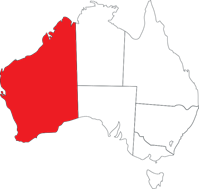 On 16 April 2020, the Western Australian State Government passed legislation to address residential tenancies impacted by rental distress due to COVID-19.
On 16 April 2020, the Western Australian State Government passed legislation to address residential tenancies impacted by rental distress due to COVID-19.
The new legislation introduced a moratorium on eviction for six months (30 March-29 September 2020) and prohibited rent increases until 29 September 2020. On 10 September, the emergency period was extended to 28 March 2021, during which time evictions and rent increases were prohibited.
On 28 March 2021, the emergency period for the Residential Tenancies (COVID-19 Response) Act 2020 ended. From 28 March 2021, ordinary tenancy laws resumed and landlords can evict tenants for rent arrears and increase rents.
Relief packages
In April 2020, the WA Government introduced grants of up to $2,000 for eligible tenants.
The COVID-19 Residential Relief Grants Scheme was expanded in December 2020 to offer rent support for tenants who will struggle financially to meet rent payments after the moratorium ends on 28 March 2021. To qualify for this fourth phase in assistance, tenants in financial hardship and facing a significant rent increase (e.g. more than the normal market rate of 5 per cent a year), can apply for the $2,000 grant, but landlords must agree to a fixed-term lease of at least six months starting from the moratorium end date. This grant is capped at $2,000 per tenancy.
Rent arrears assistance grants are also available to help tenants pay their outstanding rent debt that arose before 1 December 2020. Grants for 75 per cent of rent arrears, up to a maximum of $4,000, will be paid directly to eligible landlords. This includes any rent that was waived or reduced during the moratorium emergency period.
Applications for the grants close 28 June 2021.
Legislative changes
In 2019 a review of the Residential Tenancies Act 1987 commenced, with submissions closing 30 June 2020. No further detail is available.
Resources
- COVID-19 Consumer Protection
- Consumer Protection
South Australia (SA)
Tenancy matters
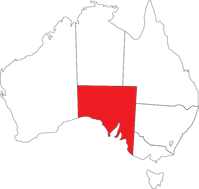 On 8 April, the South Australian State Government passed legislation to protect landlords and tenants during the COVID-19 crisis.
On 8 April, the South Australian State Government passed legislation to protect landlords and tenants during the COVID-19 crisis.
Under the new laws, until 8 October 2020, a residential tenancy could not be terminated if failure to pay rent was a result of financial hardship stemming from the COVID-19 pandemic. Rent increases were also prohibited, as was blacklisting tenants for rent arrears.
On 2 February 2021, the eviction and rent increase moratorium for residential lease agreements was extended to 31 May 2021 or 28 days after all relevant declarations relating to COVID-19 have ceased, whichever comes first.
The measures aim to
- institute a short-term moratorium on eviction for non-payment of rent due to severe rental distress as a result of COVID-19
- prevent landlords from increasing rent, where the tenant is suffering financial hardship due to COVID-19
- extend the tenant’s ability to arrange to have repairs carried out by agreement with the landlord
- provide a general protection for tenants who breach their agreement because of complying with a direction under law relating to COVID-19.
SACAT can consider undue hardship to tenants or landlords.
Relief packages
The SA Government announced land tax relief for landlords who provide tenants impacted by COVID-19 with rent relief. Applications close 30 April 2021.
Legislative changes
There are no current reviews of, or non-temporary amendments to, the Residential Tenancies Act 1995 or the Residential Tenancies Regulations 2010.
Resources
- Consumer and Business Services
- South Australian Civil and Administrative Tribunal (SACAT)
Tasmania (TAS)
Tenancy matters
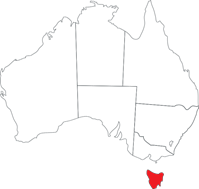 On 3 April 2020, the Tasmanian State Government introduced a 120-day emergency period into its Residential Tenancy Act. That period ended on 25 July and was extended to 30 September 2020. In November 2020, it was again extended to 31 January 2021.
On 3 April 2020, the Tasmanian State Government introduced a 120-day emergency period into its Residential Tenancy Act. That period ended on 25 July and was extended to 30 September 2020. In November 2020, it was again extended to 31 January 2021.
The emergency period and the moratorium on evictions and the freeze on rent increases ended on 31 January 2021. From 1 February 2021, landlords have been able to evict tenants for rent arrears and increase rents. General repairs and maintenance are also required to be done in line with the Residential Tenancy Act 1997.
Relief packages
In May 2020, the Rent Relief Fund was introduced. Eligible tenants can apply for up to $2,000 or four weeks’ rent to assist with rent payments. Extra support was also made available for those in continued hardship. The support packages were extended on 24 March 2021. Applications close 30 June 2021.
Landlord Support Fund and Landlord Extra Support Fund were also established for landlords who have been impacted financially due to tenants being behind in paying rent because of COVID-19. Applications close 30 June 2021.
Legislation changes
The Tasmanian Government introduced changes to the Residential Tenancy Act 1997 to allow the Residential Tenancy Commissioner to issue a repayment order which will allow landlords to recover any outstanding rental arrears which have been accrued during the COVID-19 emergency period.
The rent arrears payment order does not override the obligation of a tenant to make regular payments of rent but instead, the order outlines a schedule for repayments in addition to normal rent obligations.
Resources
- Consumer, Building and Occupational Services
- Magistrates Court
The Northern Territory (NT)
Tenancy matters
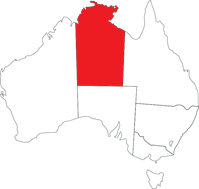 On 24 April 2020, the Northern Territory Government passed COVID-19 emergency legislation including the Tenancies Legislation Amendment Act 2020.
On 24 April 2020, the Northern Territory Government passed COVID-19 emergency legislation including the Tenancies Legislation Amendment Act 2020.
Unlike in other jurisdictions, the Northern Territory did not implement a ban on evictions for tenants in financial distress due to COVID-19. Instead, the rental laws, which will be in place only while the COVID-19 emergency declaration is in place, will push for “good faith negotiations” between tenants and landlords.
On 28 April 2020 and 11 May 2020, the Northern Territory Parliament passed COVID-19 Modification Notices that impact the processes involved in the Residential Tenancies Act 1999.
Relief packages
No relief packages were offered by the Northern Territory Government.
Legislation changes
On 1 January 2021, changes to the Residential Tenancies Act 1999 commenced. Some of these changes focus on keeping pets in residential rental properties, making it an offence to fail to comply with the requirement to place tenants’ unclaimed bond moneys into the Tenancy Trust Account, and removing the option that condition reports may be entirely based on images.
Resources
The Australian Capital Territory (ACT)
Tenancy matters
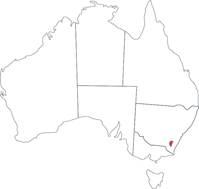 The Australian Capital Territory Government made temporary changes to residential tenancy legislation to support tenants financially impacted by the COVID-19 crisis and to assist landlords. Measures included a moratorium on evictions due to rental arrears, temporary freeze on rental increases and preventing ‘blacklisting’ because of tenants not being able to pay rent. The measures were in place between 22 April and 22 October 2020.
The Australian Capital Territory Government made temporary changes to residential tenancy legislation to support tenants financially impacted by the COVID-19 crisis and to assist landlords. Measures included a moratorium on evictions due to rental arrears, temporary freeze on rental increases and preventing ‘blacklisting’ because of tenants not being able to pay rent. The measures were in place between 22 April and 22 October 2020.
The eviction moratorium has now ended. However, the ACT Government put in place measures to continue to support tenants and landlords and to provide a smooth transition out of the moratorium. These remain in place until 30 April 2021.
Measures that remain in place until 30 April 2021
- a transition period which limits evictions on the basis of rent arrears accrued during the moratorium period for COVID-19 impacted households in certain circumstances
- the continued ability to negotiate reduced rent
- a requirement for ACAT to consider making a payment order instead of an eviction order for a COVID-19 impacted household
- the continued ability for a tenant in a COVID-19 impacted household to terminate their fixed-term tenancy agreement early and without penalty
- continued restrictions on a negative listing being made about a person from a COVID-19 impacted household on tenancy databases
- the ability for a tenant from a COVID-19 impacted household who had previous ACAT orders suspended during the moratorium to apply to ACAT to vary or set aside those orders
- the continued ability for tenants on pre-6 April 2020 fixed-term tenancies to pay just two weeks’ rent in advance (all other tenants are already able to do this).
Relief packages
Land tax rebates are available to landlords who reduce their tenant’s rent. Applications are open.
Legislation changes
All the reforms in the Residential Tenancies Amendment Act 2020 (No 1) are in effect. The reforms include measures to provide:
- lower upfront costs for tenants (tenants cannot be required to pay more than two weeks’ rent in advance)
- improved standards in rental homes (repairs to air conditioning are now classed as urgent, and minimum standards for rental properties can be set by the Government)
- more rights for tenants when their rental home is being sold (rights of landlords to access the property for inspections are subject to stricter limits, and tenants have a new right to terminate their lease early in some circumstances where the sale process is too onerous)
- easier transitions to social housing or aged care (tenants can terminate their leases at short notice and without paying compensation if they have accepted a place in social housing or aged care)
- new protections around evictions (tenants must be given at least eight weeks’ notice before they can be required to move out because the landlord, or someone close to them, wants to move in)
- better protections for landlords against illegal use of rental properties (landlords will benefit from a more streamlined process to terminate a lease where a rental property has been used illegally, while protections for tenants will ensure that they are not unreasonably evicted on this ground).
The Residential Tenancies Amendment Act 2020 (No 2) passed the ACT Legislative Assembly on 27 August 2020. The Act introduced reforms to occupancy law and to tenancy law around share housing. The changes came into effect on 3 March 2021.
Resources
- Residential tenancies
- ACT Civil and Administration Tribunal (ACAT)
*While we have taken care to ensure the information above is true and correct at the time of publication, changes in circumstances and legislation after the displayed date may impact the accuracy of this article. If you need us we are here, contact 1800 661 662 if you have any questions.
You may also like
View all
Read on for an update on where things stand with COVID-19 and landlord insurance…



